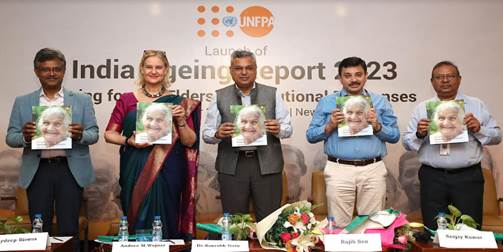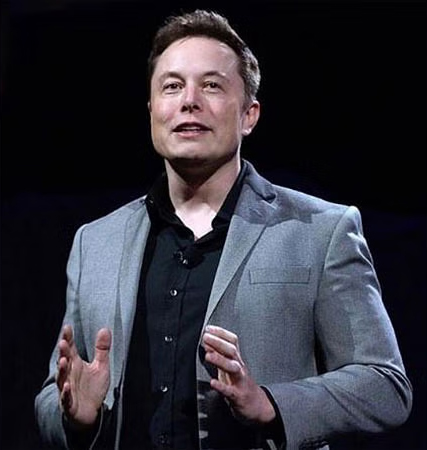A report based on the pre -poll survey of the Lokniti – Centre for The Study of Developing Societies (CSDS ), published by a national daily on 11th April, has focused on the factors which have a potential to influence the outcome of 2024 Lok Sabha elections. The survey reveals that people have to contend with issues of limited employment opportunities, spiraling price rise, increasing corruption and rural distress
 KRC TIMES Desk
KRC TIMES Desk

B L Saraf
Election fever has caught up with us all. With the passage of every day the campaign hots up, wherein the competing political actors raise a blatant sectarian and caste pitch to influence the voter preference : relegating issues of bread and butter to the back burner. It doesn’t give a good account of the nation that even after having lived with a democratic form of governance over a period of seven decades there is a furious contestation about which political party is ‘ nationalist ‘ and cares for the spiritual matters. Then this emotive issue is peddled to garner votes. It is a tragedy of sorts that an intense electioneering should place polarizing politics at centre stage and sidestep issues of economics, regard for citizenry rights and future of the young. Vitiated by shrill sectarian and parochial sloganeering, situation looks very gloomy. In many parts of the country a communal and regional divide is quite visible. But then there is a ray of hope ! All is not lost – a common citizen has shown a way.

A report based on the pre -poll survey of the Lokniti – Centre for The Study of Developing Societies (CSDS ), published by a national daily on 11th April, has focused on the factors which have a potential to influence the outcome of 2024 Lok Sabha elections. The survey reveals that people have to contend with issues of limited employment opportunities, spiraling price rise, increasing corruption and rural distress. The report, though depressing on the economic front, has a bright side, too, which may gladden heart of many who cherish pluralism and have belief in religious inclusivity. It reveals that an over whelming 79 % of those surveyed in the Lokniti – CSDS survey believe that “India belongs to all religions equally, not just Hindus.” Only 11 % said that ” India belongs to Hindus only.” The scenario depicted in this regard is in quite contrast to what we are made to watch on prime time TV shows, every evening, where hosts and party spokesperson revel raising sectarian and polarizing pitch. The debate is so skewed as to show that India belongs to the followers of a particular faith, only. All others are mere intruders.
Hate speeches are made with impunity. Couple of years back, Supreme Court heard a journalist’s petition filed for taking action against a Delhi politician for, allegedly, having made a hate speech, whereby he called up on people to boycott a particular community. The Apex Court made many telling observations, like ” where have we reached in the name of a religion, what we have reduced religion to is tragic ….” Then referring to the alleged hate speech the court remarked ” statements are really very shocking for a country that is to be religion neutral.” Over the period of time, signals were loud and clear that something has terribly gone wrong with India’s social ecosystem. The Court has confirmed it : ” climate of hate prevails in the country.” A pattern is visible. That in the day the so called ‘fringe ‘ make a speech loaded with hate and in the evening the so called intellectuals and the obliging hosts rationalize the statement in prime time TV shows ‘
There are reasons for the Apex Court to say so. We had to face protest of West Asian countries over a remark made by a spokesperson of a particular political party. There were violent protests within the country as well which resulted in loss to the property and death of an innocent tailor in Rajasthan. It was the time when UN Secretary -General, Antonio Gutterres had a word of caution for us. In his address delivered to a gathering at Indian Institute of Technology -Bombay he said : ” Diversity is a richness that makes your country great. That understanding must be nurtured, strengthened and renewed every day by practicing the values of Gandhi : by securing and upholding the rights and dignity of all people, especially the vulnerable : by taking concrete action for inclusion, recognizing the enormous value and contributions of multi-cultural, multi -religious and multi ethnic societies ; by condemning hate speech unequivocally.” India claims to be a ” Vishvaw Guru ” – a global leader- whom people around the world look up to for ‘guidance ‘. For that to happen it has to be shown, as Secretary -General says, whether India has ” increased investment in an inclusive, pluralistic, diverse community and society.” India, according to him, was in a position to highlight ” values and vision of a developing world. It has to renew the commitment to pluralism, sensitivity, empathy towards different religions, languages and cultures : celebrate diversity and not be afraid of it.”
The survey show that these remarks do resonate in the hearts and minds of vast majority of the country men who have unwavering faith in sound human values the nation is founded on : who genuinely feel concerned on how the surrounding atmosphere is getting polluted. It is essential that our conversation is purged of the communally toxic vocabulary.
A politician is within his rights to use legal and morally acceptable language to impress the electorate. But he cannot organize public opinion in a violent atmosphere and try to impose his will on others, by imputing motives to their genuine political and spiritual activity. For a nation with glorious past there can be no place for compulsion in any shape or from. Fortunately, Indians do not believe in such compulsion – the LOKNITI – CSDS latest survey confirms it.





